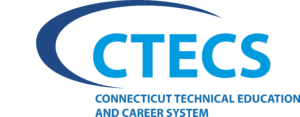Affirmative Action Resources
Affirmative Action FAQ’s
Affirmative Action is a collection of laws that protect individuals and groups from illegal discrimination. Affirmative Action involves eliminating protected class discrimination, and intentionally engaging in positive and result oriented efforts to recruit/attract, employ, advance, and retain qualified candidates that are underutilized in the workforce.
Equal Employment Opportunity is a policy that promotes access to unbiased employment, education programs, or educational activities regardless of protected class status.
Protected class status is a legal safeguard against discrimination in employment practices, education programs, or educational activities on the basis of age, ancestry, color, civil air patrol status, criminal record (in state employment and licensing), gender identity or expression, genetic information, intellectual disability, learning disability, marital status, mental disability (past or present), national origin, physical disability (including blindness), race, religious creed, retaliation for previously opposed discrimination or coercion, sex (pregnancy or sexual harassment), sexual orientation, status as a victim of domestic violence, veteran status or workplace hazards to reproductive systems, unless there is a bona fide occupational qualification excluding persons in any of the aforementioned protected classes.
BFOQ is a legally authorized restriction granted to employers to refuse the hiring of a person based on protected class status if a specific skill or protected class is essential to the job.
No. Affirmative Action are a group of laws prohibiting discrimination based on protected class status with the legal responsibility to prevent or redress illegal discrimination. Equal Employment Opportunity is the principle of fair and impartial access to education and employment regardless of a persons protected class status.
The Connecticut Technical Education Career System is responsible through its Affirmative Action Office to gather information, analyze data, and develop goals according to state and federal laws in an Affirmative Action Plan. The Affirmative Action Plan must be reviewed and approved by the Commission on Human Rights and Opportunities.
No. Quotas are a court imposed and enforced remedy to redress a discrimination settlement ordered by the courts. Goals are desired results based on formula driven data to address imbalances in the workforce, or to remove potential obstructions to Affirmative Action and Equal Employment Opportunity in compliance with the law.
Discrimination is any adverse action taken against an individual or a group based on protected class characteristic. The one exception of when an employer can legally discriminate against an individual is when there is a Bona Fide Occupational Qualification.
Harassment is unwelcome comments or conduct (oral, written, graphic, electronic or physical) relating to an individual’s actual or perceived protected class status that creates a hostile, humiliating, intimidating, or offensive environment.
The Affirmative Action Office investigates employment related protected class discrimination complaints filed by and against employees of the Connecticut Technical Education and Career System. There are statutory timelines for investigating and resolving internal and external complaints.
You should contact the Affirmative Action Office:
Levy Gillespie
Equal Employment Opportunity Director
Connecticut Technical Education and Career System
860-807-2071
Levy.Gillespie@cttech.org
Contacts
Levy Gillespie
Affirmative Action Equal Employment Opportunity Director
860-807-2071
Levy.Gillespie@cttech.org
LaWanda Scott
Equal Employment Opportunity Specialist
860-807-2053
LaWanda.Scott@cttech.org


